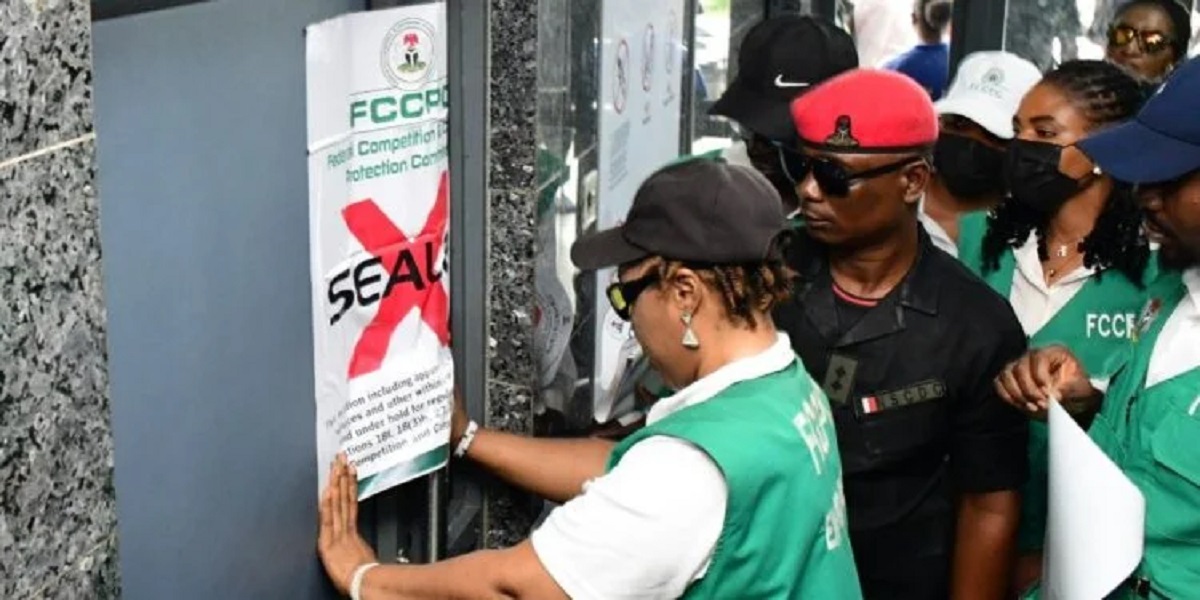News
NITDA Pledges Improved Excellent Service Delivery

The National Information Technology Development Agency (NITDA) has pledged to explore and exploit all avenues in enhancing the effectiveness of its service delivery to its customers in the realisation of its statutory core value of putting People First.

Kashifu Inuwa CCIE, NITDA Director General, made this declaration when he gave an opening remark at the maiden edition of the agency’s Customer Engagement event held at the eGovernment Training Centre, Kubwa, Abuja.
The DG who was represented by the agency’s Acting Director, eGovernment Development and Regulations department, Mr. Bernard Ewah stated that getting feedback from customers on the activities of the Agency would not only help the Agency understand what the services mean to it but also help to improve on service delivery.
“At NITDA, our mandate requires that we ensure that the public including institutions of government, individuals and businesses are able to utilise technology to further their individual and collective aspirations and to promote the wellbeing of the society”, he stated.
While laying emphasis on the Agency’s commitment to rendering excellent service delivery to its customers, Inuwa gave insights into the impact some of these services have made on the nation’s economy.
“Today, NITDA has cleared 272 projects for 70 Federal Public Institutions (FPIs) and cleared 300 projects for 81 organisations. In the process, NITDA has saved the Federal Government 10.6 Billion Naira”, he disclosed.
He noted that the ability to enhance the impact of ICT projects rank highest in the growth of the IT clearance process while stating categorically that improving the quality of services offered by the government using technology will enhance the ability of civil servants to discharge their duties efficiently as well as enhance the capacity of citizens to access government services promptly.
The NITDA also said that the registration of ICT companies is another service the Agency has been offering to citizens and mentioned that out of the 1,298 applications received by the Agency since its inception, a total of 1,168 have been registered.
While urging customers to utilise all information provided on the Agency’s website and social media platforms, he promised the Agency’s commitment to improving its service delivery
“We have introduced new measures to improve on our services and I am delighted to inform you that these platforms are being upgraded. By the end of the first quarter next year when our platforms are fully upgraded, we would be able to address some of the areas causing delays and will begin to issue electronic certificates”, he concluded.
In her goodwill message, Mrs. Nnenna Akajemeli, the National Coordinator of SERVICOM, who was represented by the Commission’s operations team lead, Mrs. Ngozi Akinbodewa expressed her satisfaction with the work done so far by NITDA.
She said service delivery cannot be effective without feedback from internal customers and external stakeholders, she said that NITDA has done incredibly well in excellent service delivery.
“Actually, I am also your customer because I am part of those that registered for IT Clearance and I can start giving you my feedback that the portal is very interactive. You are doing a lot to ensure that services are delivered effectively at NITDA”, she stated.
While delivering her welcome address earlier, the Nodal Officer of the Agency’s SERVICOM Unit, Mrs. Tariundu Ndoni appreciated the DG for his support to the Unit in organising the engagement.
Asserting physical engagement as one of the best practices, she said that it would allow a more interactive aura where the experiences of customers regarding services rendered would be made known to the agency.
“We look forward to us being candid in our needs so that they can be evaluated and addressed to satisfy our customer’s expectations”, she added
News
DBN Awards N13m in Grants to Tech Startups

Development Bank of Nigeria (DBN) has awarded a total of N13 million in grants to three standout tech startups at the 2025 Techpreneur Summit held in Lagos, reinforcing its commitment to innovation and inclusive growth among Nigeria’s micro, small, and medium enterprises (MSMEs).

The winners include: BuyScrap, a digital marketplace for recyclable materials – N6 million; Qiqi Farms, which connects local farmers to hospitality and export markets – N4 million; Eco-Cyclers, a youth-led recycling initiative based in Enugu – N3 million
Alongside the grant awards, DBN also launched a new digital data asset, a first-of-its-kind platform aimed at enabling data-driven decisions within the MSME ecosystem.
The platform offers deep insights into business trends, sector-specific challenges, and growth opportunities—supporting smarter policymaking and targeted investments.
In his keynote address in Lagos, Tony Okpanachi, managing director/ CEO, DBN, described the event’s theme, “CTRL + SHIFT: Tech Empowered Movement for Naija,” as a strategic call to reimagine enterprise development in Nigeria.
“This isn’t just a keyboard shortcut,” he said. “It’s a mindset reset—powered by technology—to build a more inclusive, innovative, and resilient business landscape. From financing to innovation, DBN remains committed to enabling MSMEs to thrive.”
Okpanachi emphasized that the Summit aligns with DBN’s AMPLIFI Strategy, which integrates digital transformation, sustainability, and scalability into its core programs.
He highlighted initiatives such as the Digital Shift Workshops and the Eco-Innovation Challenge as key steps toward embedding innovation in Nigeria’s MSME sector.
Encouraging young innovators, he added: “The future belongs to those bold enough to imagine and build it. DBN is proud to support the ideas that will shape tomorrow.”
A major highlight was the unveiling of the DBN Data Asset—a digital platform designed to provide real-time, evidence-based insights into Nigeria’s MSME landscape.
The platform combines DBN’s proprietary data with external sources like the National Bureau of Statistics (NBS) to offer a comprehensive view of MSME performance by region and sector.
Jeremy Dan Okayi, DBN’s Head of Strategy, Policy & Innovation, described the platform as: “A reservoir of insight, potential, and direction—built on two years of collaboration and shared vision. This tool will support informed decision-making across the public and private sectors.”
News
FCCPC Shuts France, Belgium, and Italy Visa Centres in Abuja Over Alleged Consumer Rights Violations

In a bold enforcement action, the Federal Competition and Consumer Protection Commission (FCCPC), supported by the Nigeria Police Force and the Nigeria Security and Civil Defence Corps (NSCDC), has sealed off the visa application centres of France, Belgium, and Italy in Abuja over alleged consumer protection breaches and obstruction of regulatory investigations.

The affected centres—located at Mukhtar El-Yakub House in the Central Business District and operated by TLS Contact, a Teleperformance Company—were shut down following reports that they refused to accept formal correspondence from the FCCPC regarding a consumer complaint. The Commission cited further infractions, including obstruction of investigation and alleged assault of its officers during lawful duties.
Speaking to journalists at the scene, Mrs. Boladale Adeyinka, Director of Surveillance and Investigations at the FCCPC, explained: “This is an enforcement operation against TLS. On March 25, 2025, we served them a letter to address a consumer complaint, which they refused to accept. Instead, TLS officers assaulted our team, and in a subsequent visit on June 17, they also allegedly assaulted uniformed police officers.”
Citing Section 33 of the Federal Competition and Consumer Protection Act (FCCPA), Mrs. Adeyinka emphasized that failure to comply with Commission directives constitutes a criminal offense, punishable by imprisonment, fines of up to ₦20 million, or both.
TLS has been ordered to appear before the Commission on June 20, 2025, to provide testimony, submit evidence, and make formal depositions. The company may be held liable for any financial losses suffered by applicants due to the disruption of visa services.
Despite multiple requests for comment, management at TLS Contact declined to respond as of press time.
News
How and Why N210 Trillion is Missing in NNPCL – CFO

Adedapo Segun, chief financial officer (CFO), Nigerian National Petroleum Company Limited (NNPC), has explained why there is a missing sum of N210 trillion in the company’s audited financial statement spanning from 2017 to 2023.

According to Segun, the missing funds are cash calls requested by joint venture (JV) partners and settlement to the JVs.
He spokeat a session of the Senate Committee on Public Accounts chaired by Aliyu Wadada.
Segun was responding to an alarm raised by the committee over missing N210 trillion in NNPCL’s audited financial statement.
Recall that Wadada issued a one-week ultimatum to NNPCL to account for the missing N210 trillion.
Reacting, Segun said, “The N103 trillion and N107 trillion are made up of joint venture cash calls that have been requested by the JV operators and JV cash call payments made by NNPCL, which are yet to be reconciled because governance procedures were not done at that time.
“That is why you see the description reflecting those two items would be washed out because they are two sides of the same transaction, which is the cash calls by JV partners and the settlement by NNPCL.”
However, Habu Sadeik, a financial analyst, in a post on X on Thursday, said Segun’s response was unsatisfactory.
Saidik faulted NNPCL’s response about the fund discrepancies, noting that something is not right with the audited financial statement.
“Forget about the senators’ lack of knowledge.
“The CFO’s response is not satisfactory. Are you saying that cash calls worth hundreds of trillions are just appearing on your FS only in 2024 without 31 disclosure?
“If it’s a cash call, why hasn’t the disclosure said so?
“Which cash call is over 100 trillion?
“Something is definitely not right, and I hope they retrospectively correct that FS.
“Someone somewhere did a chef’s work,” he wrote on X.

 News2 days ago
News2 days agoLasaco Assurance to Invest in Technologies, Systems to Deliver Value to Clients

 E-Financial2 days ago
E-Financial2 days agoNIBSS National Payment Stack to Transform Nigerian Instant Payments

 E-Financial2 days ago
E-Financial2 days agoCBN Reaffirms Banking Sector Resilience as Forbearance Ends

 News1 day ago
News1 day agoPalmPay, Glo Launch “Recharge and Win Bonanza 2” with Exciting Prizes

 General News1 day ago
General News1 day agoBridging the Digital Divide: Over 700 Young Africans Empowered by Paradigm Initiative

 General News1 day ago
General News1 day agoIHS Nigeria, United Nations Global Compact Host High-Level Dialogue on Sustainability and Greener Business Practices in Nigeria

 News1 day ago
News1 day agoHow and Why N210 Trillion is Missing in NNPCL – CFO

 Telecom2 days ago
Telecom2 days agoParadigm Initiative Warns of AI-Driven Hate Speech, Urges Global Tech Reform




























